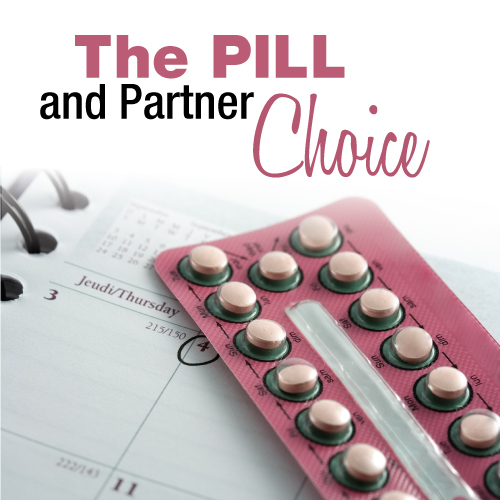The Pill and Partner Choice

It has long been known that hormonal contraceptives diminish a woman’s natural sexual drive (also called ‘libido’). Now there is real life evidence that the Pill also affects a woman’s partner choice.
In a study published in Royal Society B: Biological Sciences, the authors speculate that hormonal contraceptive use before marriage could have a long lasting impact on marital satisfaction and outcomes. In previous laboratory studies, women using hormonal contraceptives showed a weaker preference for masculine men. These men typically have lower testosterone levels and so tend to be more supportive, have a weaker sex drive and are less likely to have an extra-marital affair. The effect reversed when Pill use was discontinued leading the women to feel sexually dissatisfied with their partners.
To examine the effect in real life, psychologists used an online survey of more than 2,500 women who were asked to reflect on the father of their first child. According to the results, those mothers who used the Pill while choosing their partner were happier with non-sexual aspects of their relationship like their mate’s financial support, but were less attracted to him and less sexually satisfied. They were less likely to divorce over all, but among those who did, the woman was more likely to be the initiator.
What might we conclude from these results?
Firstly, Pill use has significant effects on the relationship. The authors and a number of commentators suggest that before the wedding, women discontinue Pill use so that they can assess whether they are still sufficiently attracted to their future husband. This may prevent them marrying that person, but it won’t be without substantial heartache. Much better to avoid Pill use altogether during the dating period and avoid falling in love with someone to whom you are not attracted. Of course, if the Pill effects a woman’s attraction to a mate before marriage, it will do the same afterwards. Therefore Pill use at any stage of a relationship, both before and during marriage is risky in this regard.
Secondly, it’s instructive to note that what initially attracts women to a mate (the high testosterone masculinized male) are not the qualities that seem to be valued once children come along where financial provision, fidelity and emotional availability become more significant. In the mate selection process, sexual attractiveness is often over rated while the important parental virtues (that can seem to be so far in the future) are regularly under examined. Perhaps single women would be well advised to examine their criteria for mate selection in view of these findings. Sometimes, the most marriageable men are not the studs that win the attention of the ladies.
Finally, the study did not examine the impact of pill use on the women’s partners. For many species in the animal kingdom, pheromones (chemical signals transmitted by sense of smell) are released when the females are fertile to attract the attention of the males who are otherwise disinterested in copulation. The results beg the question… does pill use affect a man’s attraction to a woman and does it change when she discontinues use?


